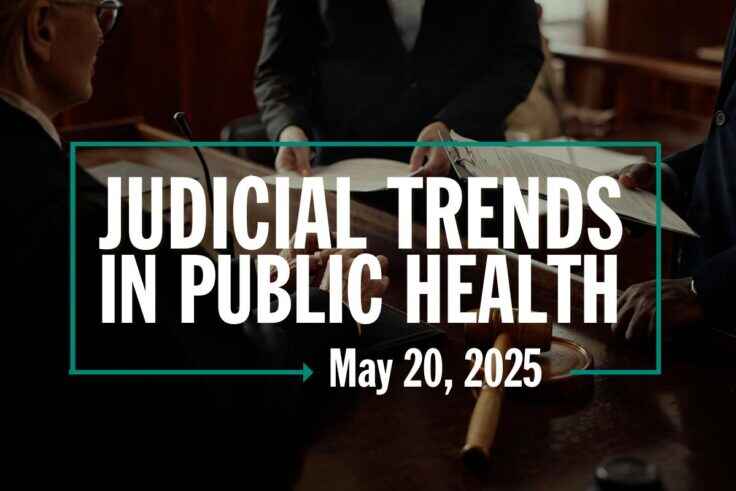Judicial Trends: Recent Case Decisions with Long-term Implications for Public Health
Overview
2:00 – 3:00 p.m. ET | October 21, 2021
The COVID-19 pandemic and a reconstituted Supreme Court have spurred public health interpretations at all judicial levels over the past several months with serious implications for public health in the coming years. Key legal issues impacting public health in courts recently include reproductive freedom, vaccination, cannabis, Public Readiness and Emergency Preparedness (PREP) Act interpretation, voting rights, and gun control. All of these and more will be unpacked in this rapid webinar session, which will provide key updates on recent court decisions and a view into significant upcoming decisions in the Supreme Court’s term ahead.
View/download the Presentation Slides
By attending this webinar, you will:
- Learn about recent impactful court decisions in public health law in areas including vaccination, reproductive freedom, cannabis, Public Readiness and Emergency Preparedness (PREP) Act interpretation, voting rights, and gun control.
- Understand novel public health legal issues currently being litigated in courts across the country, with potential Supreme Court repercussions.
- Hear about pivotal Supreme Court decisions undertaken in recent months impacting public health law, and certain decisions yet to come.
Moderator:
- Morgan Jones-Axtell, J.D., Staff Attorney, Network for Public Health Law-Eastern Region
Presenters:
- Kathi Hoke, J.D., Director, Network for Public Health Law-Eastern Region Office and Professor and Director, Legal Resource Center for Public Health Policy, University of Maryland Carey School of Law
- Jen Piatt, J.D., Deputy Director, Network for Public Health Law – Western Region Office
You may qualify for CLE credit. ASLME is an approved provider of continuing legal education credits in several states ASLME will also apply for CLE credits in other states upon request. An email from ASLME regarding CLE credits will be sent to attendees following the webinar.

